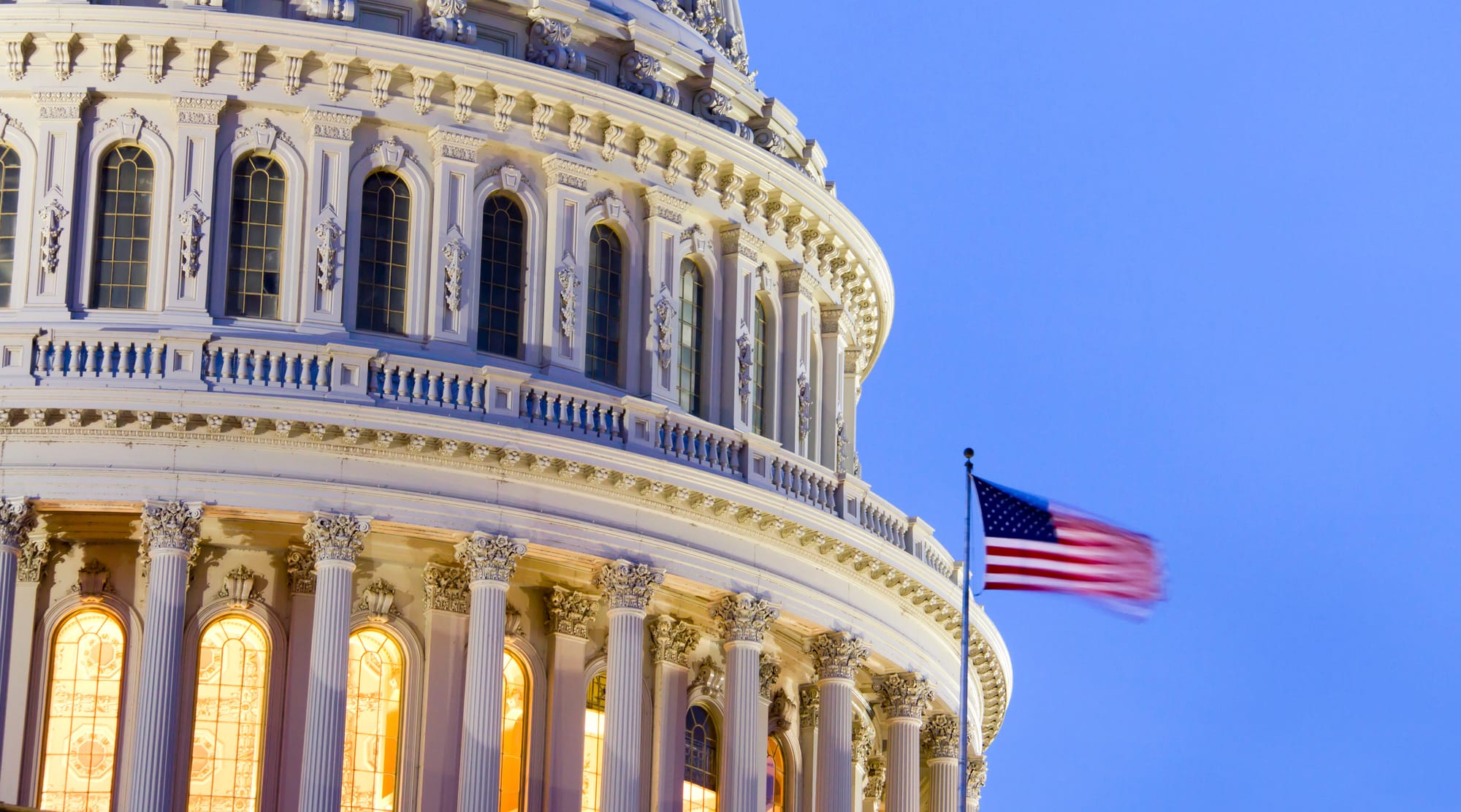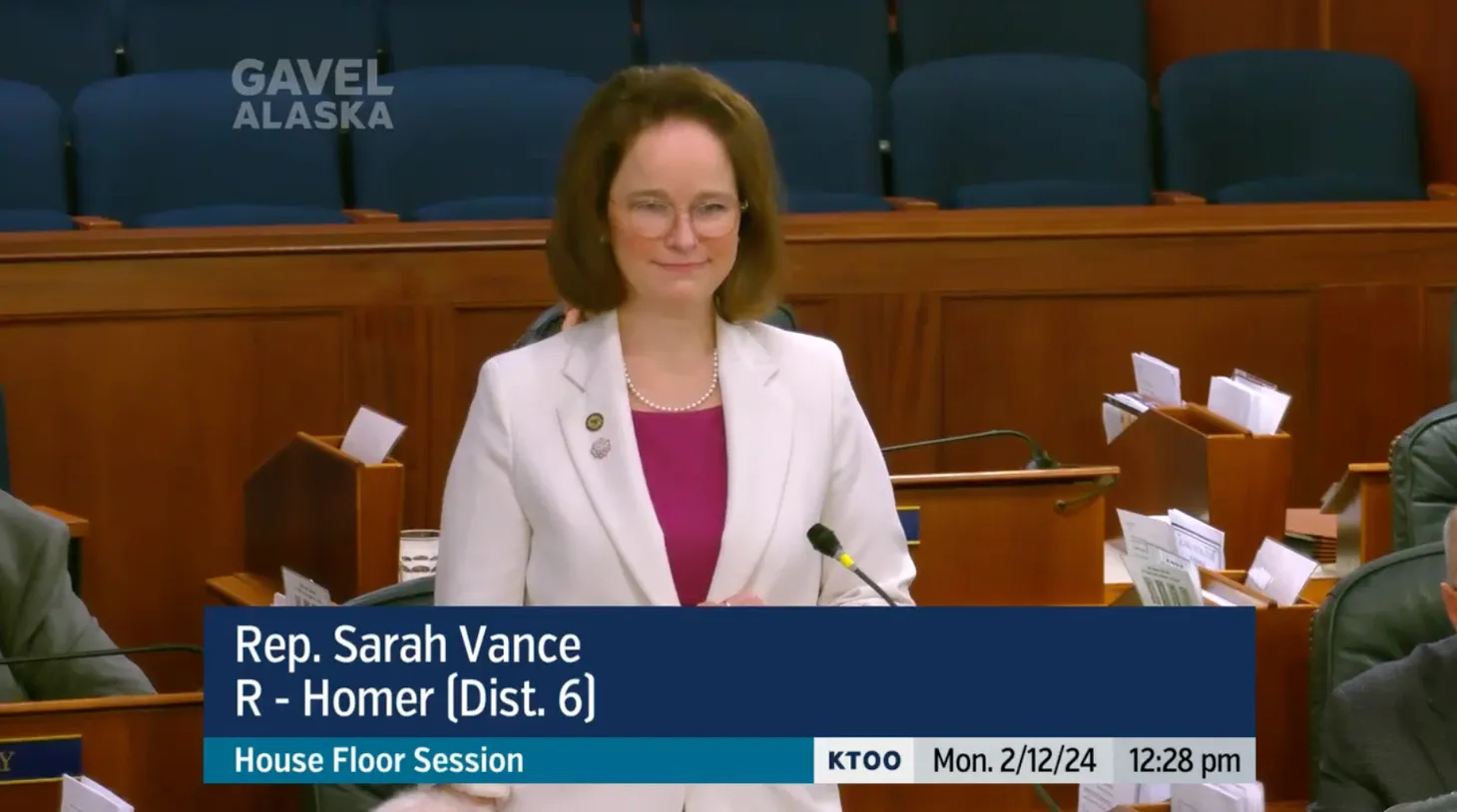Senators: It's 'high time' for new revenue
The Senate Majority is considering new oil revenue as the state faces hard choices elsewhere.

It's... Wednesday? It's Day 23 of the legislative session.
In this edition: In a surprising move, Senate leadership on Tuesday announced their intention to pursue new revenue through revised oil taxes on the state's oil industry. While it might come as a bit of a plot twist on the session, it's the logical outcome of an ever-worsening budgetary picture for the state as stagnant public school funding and disappointing infrastructure spending are running headlong into the middling performance of the Alaska Permanent Fund. After many years of buying additional runway, the fiscal cliff might finally be in sight. Meanwhile, U.S. Sen. Lisa Murkowski is OK with two of Trump's most problematic appointments after she got some assurances, which has worked so well in the past. Finally, today, Alaska Supreme Court Justice Susan Carney delivered a historic State of the Judiciary address to the Legislature.
Current mood: 😲
It's 'high time' for new revenue

Through the first three weeks of the legislative session, the uncomfortable truth of the state's current financial situation has become apparent. There is simply not enough revenue to cover the many worsening needs in just about every corner of the state. Even when legislators back out the governor's never-gonna-happen full Alaska Permanent Fund dividend and add in all the things the governor left out of his budget, we're left with a deficit that's expected to cross the $500 million mark depending on where education funding lands. As it stands, there are few easy or responsible options for covering the deficit with the existing cash sources as the Constitutional Budget Reserve requires a leverageable three-quarter vote to tap, and you quickly run into long-term problems if you start to dip into the spendable-with-a-majority-vote Earnings Reserve Account of the Alaska Permanent Fund.
As I've written before, the governor has offered little guidance or leadership on broadening the state's revenue picture — the part of the equation that Republicans always seem to omit when they compare the state's budget to a household budget to suggest that we just need to save and cut in the face of collapsing income. He vetoed a tobacco bill because it dared raise taxes on vapes and pulled a bait-and-switch on a sales tax and revenue-focused special session. His best suggestion has been to insist that Trump will make it all good by drilling for oil, ignoring the little fact that oil and gas development isn't a tap to be turned on but a risky, multi-year endeavor that will cost the state before it deposits a dollar in the state treasury.
So, in that vacuum, leave it to the Senate's long-timers, who've seen it all before, to step in and deliver some frank truth about our financial situation.
"The state is probably facing its largest problem in 30 years. That's astounding. We hear the problems that we're facing at this table in education, in transportation and just about every front," said Bethel Democratic Sen. Lyman Hoffman, the longest-serving sitting legislator, while explaining the state's financial pinch. "The list goes on and on. There's the wishlist that the people of Alaska have come to expect. We need to see whether we can afford them."
In simple numbers, the status quo budget is expected to produce a deficit of around $200 million. However, when you include education funding, labor contracts, and several needs that Dunleavy simply left out of his budget, such as refilling the disaster relief fund after he vetoed refilling it last year, the deficit balloons to more than $500 million. When the two main sources of state savings —the CBR and the ERA of the Alaska Permanent Fund — come with significant strings attached, the dividend is a prime target for further cuts.
That is, of course, as long as the state's revenue picture stays unchanged, which Hoffman says needs to change and change soon.
"I think it's high time the Legislature look at raising new revenues if we want to accomplish the many things that we want to do. If not, I don't see a clear path forward to balancing not only this year's budget but next year's budget," he said, later adding, "I'm glad to report that new revenues are on the Senate's list of things that need to be addressed this year."
To that end, the Senate appears to be banking on long-sought-after changes to tighten up the state's oil tax regime, closing loopholes and ending credits. Sen. Bill Wielechowski went over some of the options at the hearing, laying out how ending the $3 per barrel credit — a change that the Dunleavy administration even seemed to concede was doable a few years ago — would raise about $400 million annually while extending the state's corporate income taxes to S-Corps (which would be Hilcorp) would raise about $175 million.
Together, the two would just about solve the situation. Wielechowski, who has long called for the changes, argued that the tax changes wouldn't impact oil investment in the state while significantly improving the state's financial outlook. He also touched on proposals extending corporate income taxes to online businesses operating in Alaska and other wonky changes to the oil tax system.
"If you really want to get creative, you could ringfence Prudhoe Bay," he said, bringing up a dusty old term from a couple of sessions ago about limiting the ability of companies to deduct the expense of new development of one field against the existing production in another, as is the case with ConocoPhillips' work on the Willow project.
While there's certainly some keen interest in changing the state's revenue picture, the Senate hasn't committed to a specific plan. That said, Senate President Stevens was adamant that personal taxes such as sales or income tax are not on the table.
The Senate Majority hasn't introduced any revenue measures this year, and the only idea of the above that's actually outlined in legislation is the S-Corp change, which Senate Minority Republican Sen. Robert Yundt proposes in Senate Bill 92.
Why it matters
Instituting any tax changes will be a massive lift, but as Sen. Hoffman jokingly pointed out during the news conference: "It's always easier to tax somebody else." If push comes to shove — which is precisely what's happening with the budget pressures — it'll be politically and logistically easier to implement taxes on the oil industry than it will be to set up a statewide sales or income tax.
Of course, the Senate is just one part of the equation. The House seemed somewhat skeptical of the whole effort, in large part because Dunleavy's veto pen is awaiting any new tax. After all, he vetoed a bill raising the age of tobacco sales because it dared tax vapes, and he's far more pro-oil industry than he is pro-vape.
Still, the politics of taxing oil companies, especially when framed as an effort to fund public schools and protect the dividend from deeper cuts, has its appeal.
That probably goes a long way toward explaining the governor's stubborn, everyone-but-me-is-lying opposition to funding schools (well, that and his long-standing efforts to dismantle the system and funnel money into private and religious education) and his broader insistence that everything is just fine.
"Money doesn’t grow on trees," he said at his State of the State. "If we want more money for programs, we need more resource plays to fund them."
Still, it's frankly kind of exciting that discussions will be happening at all. Anyone who has been following the budget for a while will know we've had an untenable structural deficit for far too long.
Stay tuned.
Follow the thread: The Senate outlines a revenue plan
More coverage: ADN, Alaska Beacon
Murkowski on board with Kennedy, Gabbard after 'assurances' they're not that terrible

In a disappointing turn, Alaska U.S. Sen. Lisa Murkowski fell in line with fellow Republicans to secure the confirmation of two of Trump's most problematic picks in Tulsi Gabbard for Director of National Intelligence and Robert F. Brainworm Kennedy Jr. for the Department of Health and Social Services. In a move that echoes her decision to support Brett Kavanaugh for the U.S. Supreme Court, Murkowski said she had reservations about both candidates that were overcome with assurances that they'll somehow behave differently once they're in charge of critical functions of the federal government.
“I continue to have concerns about Mr. Kennedy’s views on vaccines and his selective interpretation of scientific studies, which initially caused my misgivings about his nomination,” she wrote in a social media post explaining her support. "Vaccines have saved millions of lives, and I sought assurance that, as HHS Secretary, he would do nothing to make it difficult for people to take vaccines or discourage vaccination efforts. ... These commitments are important to me and, on balance, provide assurance for my vote."
Fun times.
More coverage: Alaska Public, ADN
'A long time coming'

Alaska Supreme Court Chief Justice Susan Carney delivered the annual State of the Judiciary Address to the Legislature this morning, outlining efforts to hasten the resolution of criminal cases — though she noted that the extremely delayed cases that recently made headlines were atypical and most cases are being resolved much more quickly than that while respecting constitutional rights — and improve access to the court system through various initiatives. She also called on the Legislature to provide the next stage of funding for a courthouse expansion in Palmer, which she said is the fastest-growing courthouse in the state, and there's currently not enough room to house all the proceedings. She said they're nearly ready to start construction on an expansion that would add three courtrooms and associated space.
But the day will be remembered for a historic first:
"I'm especially happy to speak to you as the chief justice of the first majority-woman Supreme Court in Alaska's history and to address the first majority-woman House of Representatives," Justice Carney said in her introduction. "This has been a long time coming, but what an example for Alaska's children — that they can aspire to these positions and can achieve them."
Follow the thread: Justice Carney's State of the Judiciary Address
The Alaska Memo Newsletter
Join the newsletter to receive the latest updates in your inbox.




